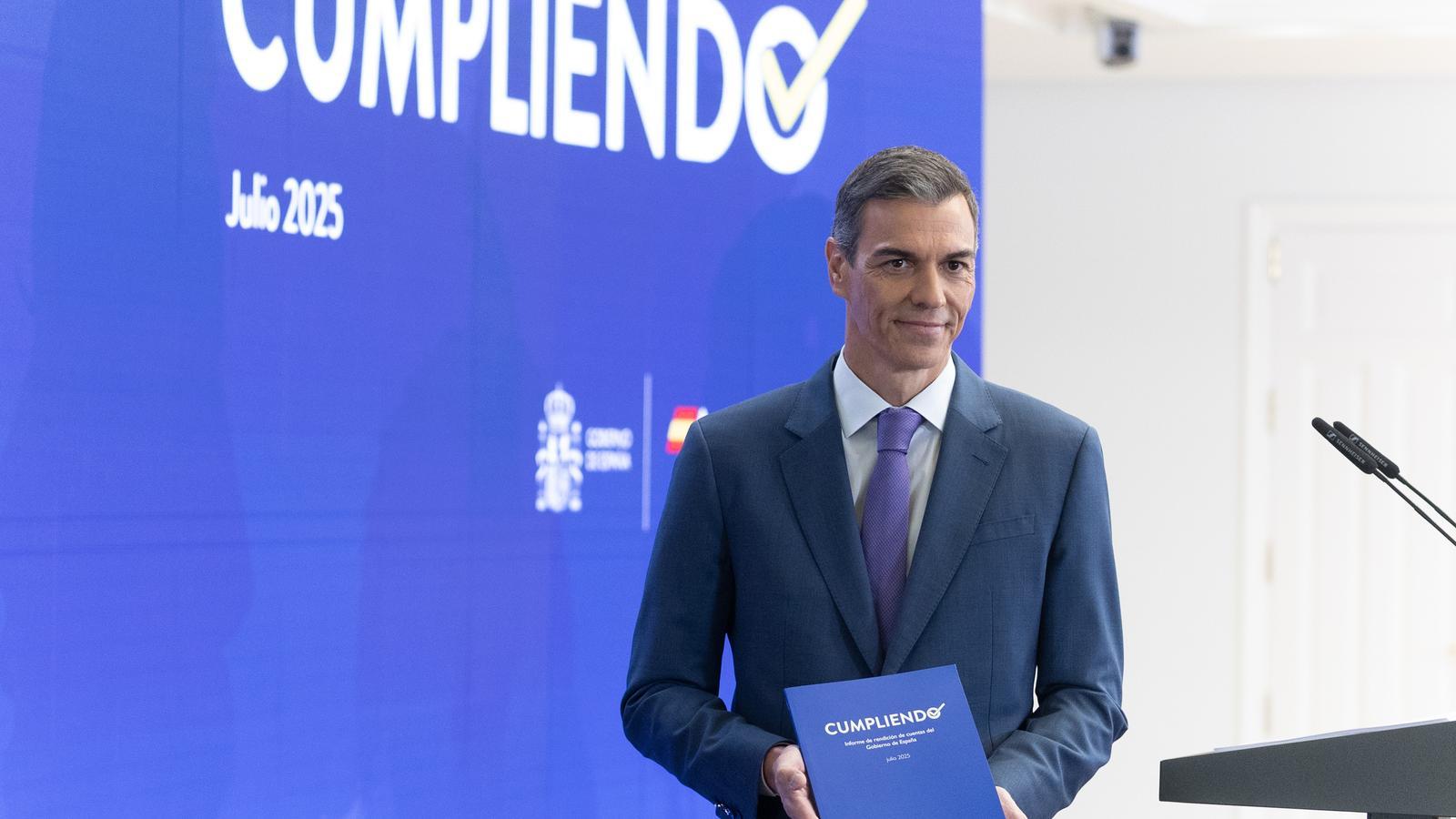Sánchez acknowledges the difficulties but maintains he will complete his term: "There's still a lot of work to be done."
The Spanish government intends to present a general state budget for 2026.


MadridPedro Sánchez is determined to see out the current term. Although he has reached the halfway point of his term—a priori, it ends in 2027—at a time marked by weakness in the Congress of Deputies and dogged by the shadow of corruption with the Santos Cerdán case, which is looming over the PSOE, Sánchez is not throwing in the towel. "There is still a lot of work to be done and a long term," the Spanish Prime Minister stated this Monday, as he began his review of the year before the holiday strike, during which he presented the report. Complying.
The idea was vehemently reiterated a short while later: "Legislatures last four years," Sánchez stated. The Spanish Prime Minister responded in this way to the possibility of exhausting the current mandate without having approved any general state budget (the 2023 accounts, that is, from the previous legislature, are still extended) and whether this would force the Spanish executive to bring forward elections. Sánchez assured that the government will present a draft state budget for 2026. However, whether it ultimately prospers or not is another matter: "I will work with all groups to approve [a new budget] [...] What do I do if they don't approve it? I will work to convince them that they are good accounts."
The question that has been hanging over this debate for days is whether Sánchez will present them, despite not having the necessary minimum votes. In other words, whether he will jump into the deep end. "In any case, as I've said on other occasions, in addition to a state budget, we have a fantastic tool in the form of European funds, which are also other budgets, another avenue for job, social, and economic growth," Sánchez added.
The truth is that the State budget is one of the most important tests, if not the main one, in order to boast of stability, but also of a government project, if the intention is to complete the legislature and call elections in 2027. The reality is that if he fails to approve the budget in 2026, Sánchez could be forced to end up complicating the negotiations even further. If the usual procedure is taken into account, the Spanish government is already late in the process of preparing public accounts for 2026.
Trust with partners
However, neither the ongoing court cases surrounding the government, nor the outbreak of the Santos Cerdán case (also the Koldo and Ábalos cases), nor the failure to convince the investiture partners to push through many of the measures have discouraged the Spanish government, or at least that's what it has conveyed. Faced with all these headaches, it is once again clinging to the economy. "In the face of the usual doom and gloom, there's optimism in the data," stated Sánchez, who did not hesitate to boast about the arrival of foreign tourists this summer, the number of people registered in the labor market, GDP growth, and the arrival of investment in renewable energy, among other issues. "Each victory [in the Congress of Deputies] has filled us with joy, and when we have secured support [for a law], we have been filled with conviction to pass it [later]," he expressed.
But the truth is that the Cerdán case, which led to the provisional imprisonment of the until recently number three of the PSOE (Spanish Socialist Workers' Party) and Pedro Sánchez's strongman, has created a rift in the always weak relationship between the Spanish government and its investiture partners, particularly Junts and Podemos, to the point that he even planned the idea of planning the idea. In fact, Sánchez's assessment came after the Congress of Deputies last week rejected the energy decree to strengthen the Spanish electricity system. Aside from the PP, Junts, Podemos, and the BNG (National Liberation Front) voted against it.
All of this has also meant the Spanish government has had to live with constant barbs from the PP, which is also shadowed by corruption following the outbreak of the Montoro case. For the PSOE, this has presented itself as one of the few opportunities to shift focus from the cases that implicate it.
Social Turn
However, Monday's appearance began with a clash between the PSOE and Sumar over the new paid leave for childbirth and childcare. Ultimately, the two coalition government partners reached an agreement for the Council of Ministers to approve the new benefits tomorrow, Tuesday. Díaz Sumar, like the party, sees this decree as a breath of fresh air to focus on social issues and boost the legislative session.
